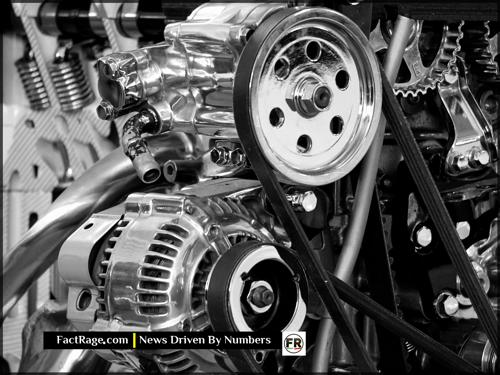TOKYO, JAPAN – A series of engine-related safety recalls is escalating into a significant financial crisis for Nissan, raising critical questions about the long-term impact on the automaker’s balance sheet and brand reputation.
- Massive Scale – Over 400,000 modern Titan, Frontier, and Kicks vehicles are part of recent recalls due to engine issues that can cause stalling or failure, part of a broader pattern of powertrain concerns.
- Significant Financial Exposure – Analysts project the direct cost of repairs, logistics, and reimbursements could approach or exceed a billion dollars, not including potential fines and litigation expenses.
- Brand and Market Impact – The recalls threaten to erode consumer trust and vehicle resale values, creating a significant headwind for Nissan (NSANY) as it competes in a crowded global market.
This unfolding situation represents more than a mechanical fix; it is a severe test of Nissan’s corporate strategy, quality control, and financial resilience. For consumers and investors, the key question is what the true, all-in cost of this engineering failure will be.
What’s Behind the Widespread Recalls?

The most pressing issue stems from recalls initiated in 2024, including one involving nearly 200,000 Titan and Frontier trucks and another for over 236,000 Kicks and Versa cars. According to National Highway Traffic Safety Administration (NHTSA) documents, the issue in some trucks involves machining errors that can cause engine bearings to fail, potentially leading to a complete engine seizure while driving. This presents a severe safety risk and a costly, complex repair.
These recent events do not exist in a vacuum. They follow years of consumer complaints and class-action lawsuits related to other Nissan engines, particularly those concerning excessive oil consumption that could also lead to premature engine failure. This pattern suggests a deeper, more systemic issue within the company’s manufacturing and quality assurance processes. The accumulation of these problems creates a much larger financial and reputational liability than any single recall would on its own.
Calculating the Direct Financial Hit
Estimating the full financial burden of a recall is a complex exercise, but a baseline can be established. An engine replacement or significant repair is one of the most expensive fixes an automaker can face, easily running from $5,000 to over $10,000 per vehicle at a dealership level. Even with scaled operations, the cost for parts and labor across hundreds of thousands of vehicles quickly climbs into the high hundreds of millions.
When factoring in the logistics of notifying owners, shipping parts globally, and compensating dealers for the service work, the direct cost for the 2024 recalls alone is projected by industry analysts to be between $800 million and $1.2 billion. This figure does not account for the costs associated with potential regulatory fines or the settlement of inevitable class-action lawsuits, which could add hundreds of millions more to the final tally. For a company like Nissan, which reported a net income of approximately ¥344 billion (roughly $2.2 billion) for the fiscal year ending in March 2024, a billion-dollar charge represents a substantial blow to profitability.
The Deeper Cost of Eroding Trust
While the direct financial costs are staggering, the indirect and long-term damage may prove even more significant. Consumer trust is a critical asset in the automotive industry, directly influencing purchasing decisions and brand loyalty. Widespread media coverage of engine failures undermines the perception of reliability that Nissan has spent decades building.
This erosion of trust manifests in several ways:
- Depressed Resale Values: The market value for used Nissan vehicles, particularly the models involved in the recall, is likely to fall as buyers become wary.
- Market Share Loss: Competitors like Toyota, Honda, and Hyundai will likely leverage Nissan’s quality control issues in their marketing to attract uncertain buyers.
- Investor Confidence: The company’s stock has reflected this uncertainty. A consistent pattern of costly recalls can lead investors to question the effectiveness of management and the company’s long-term competitive position, putting downward pressure on its share price.
Nissan now faces the dual challenge of executing a technically complex and expensive recall while simultaneously launching a major effort to restore faith in its engineering. The road ahead requires not only fixing the faulty engines but also rebuilding a core asset: its reputation.














